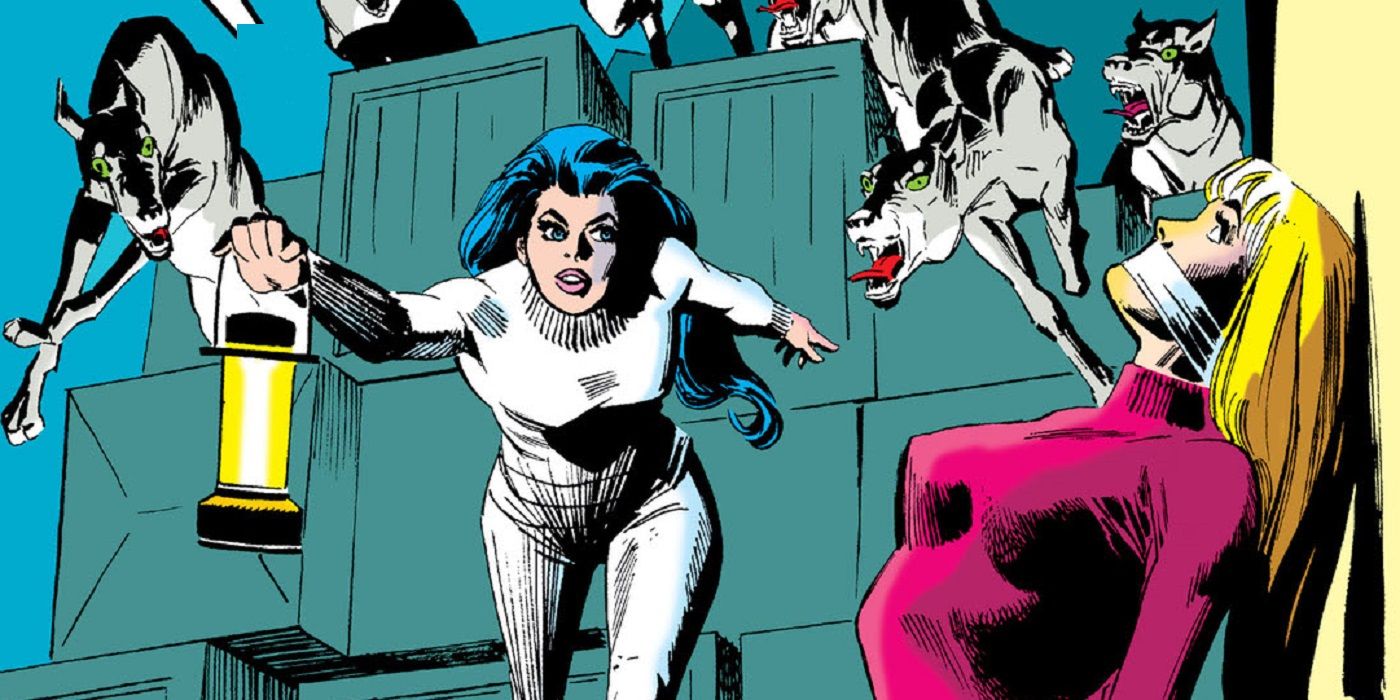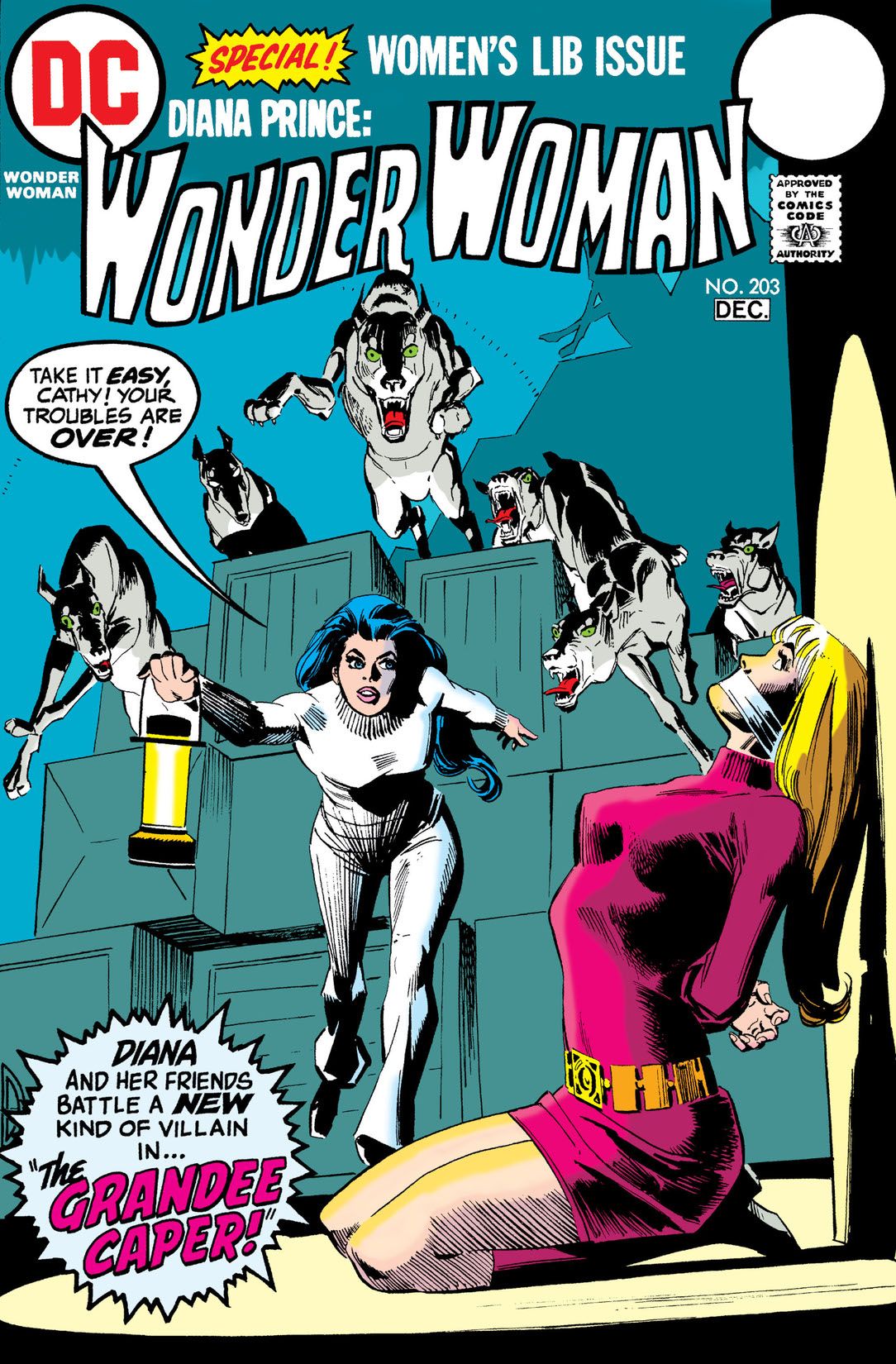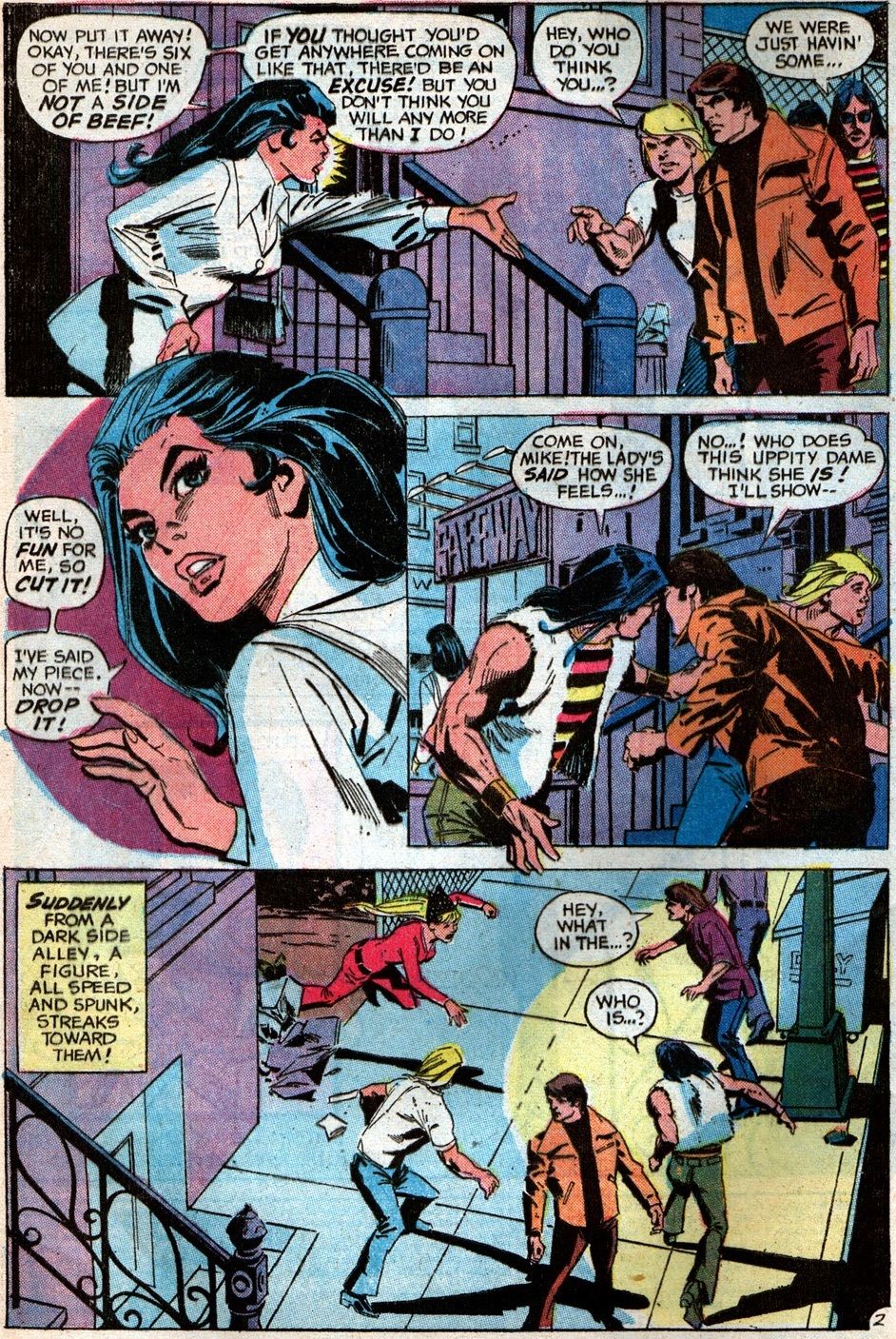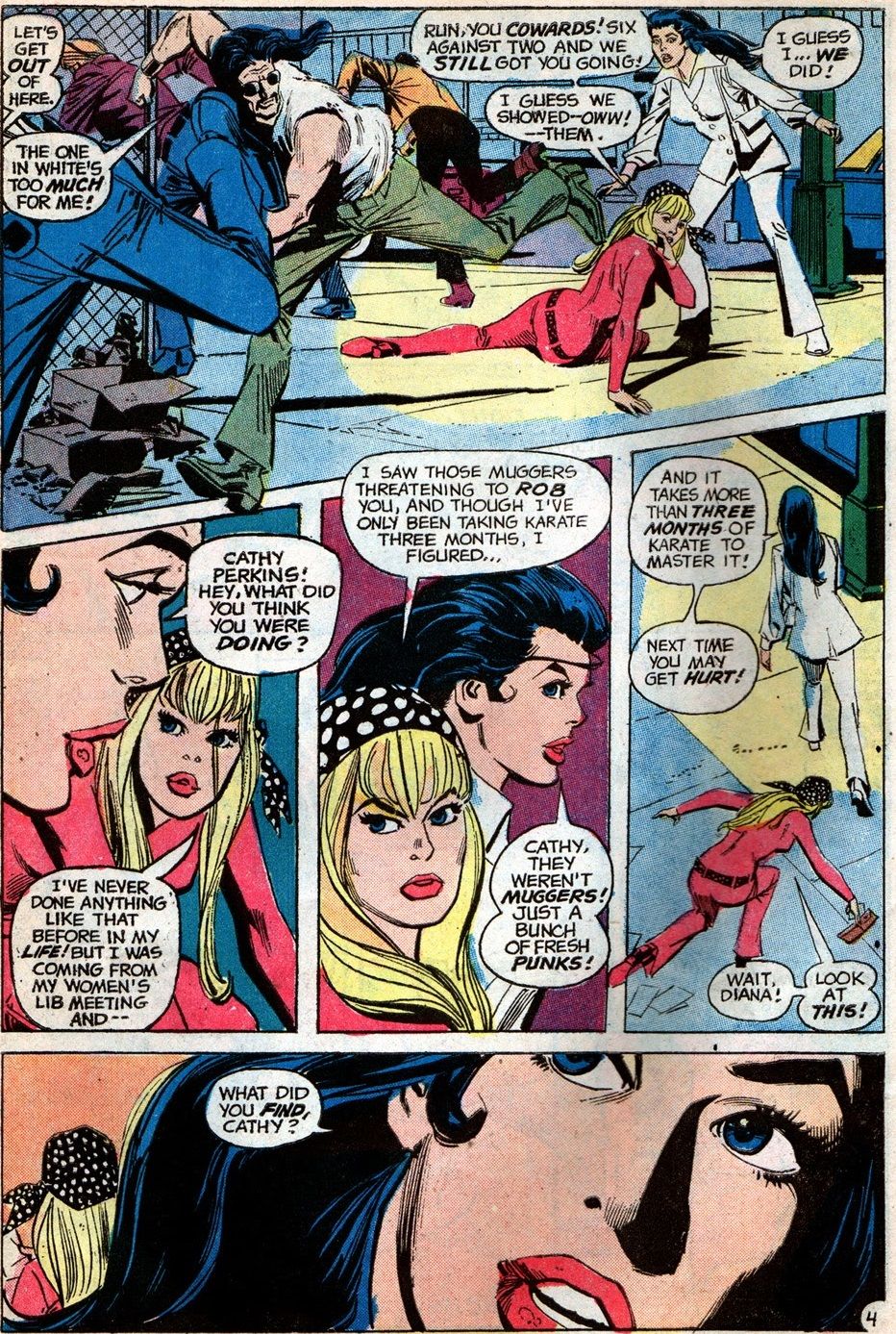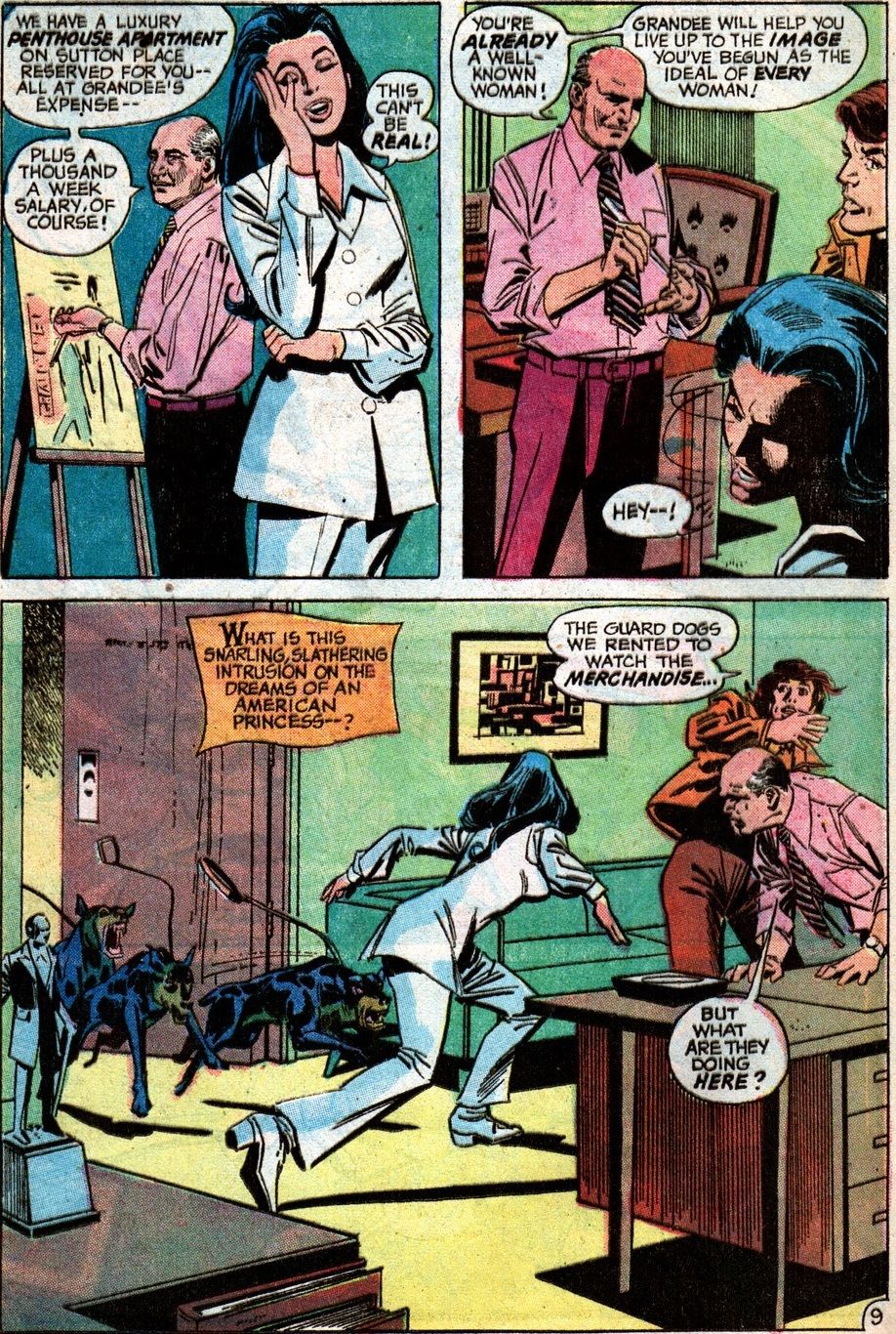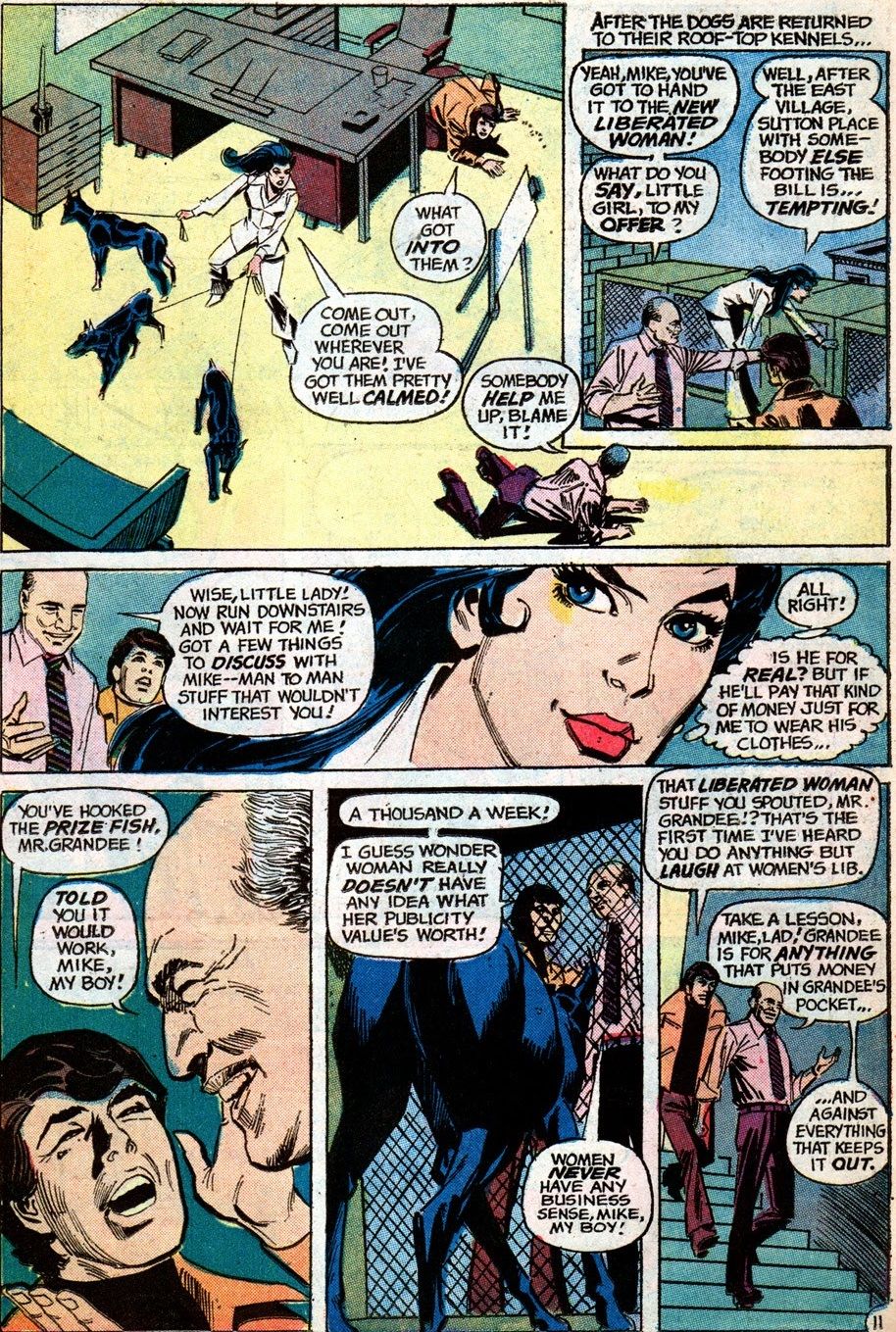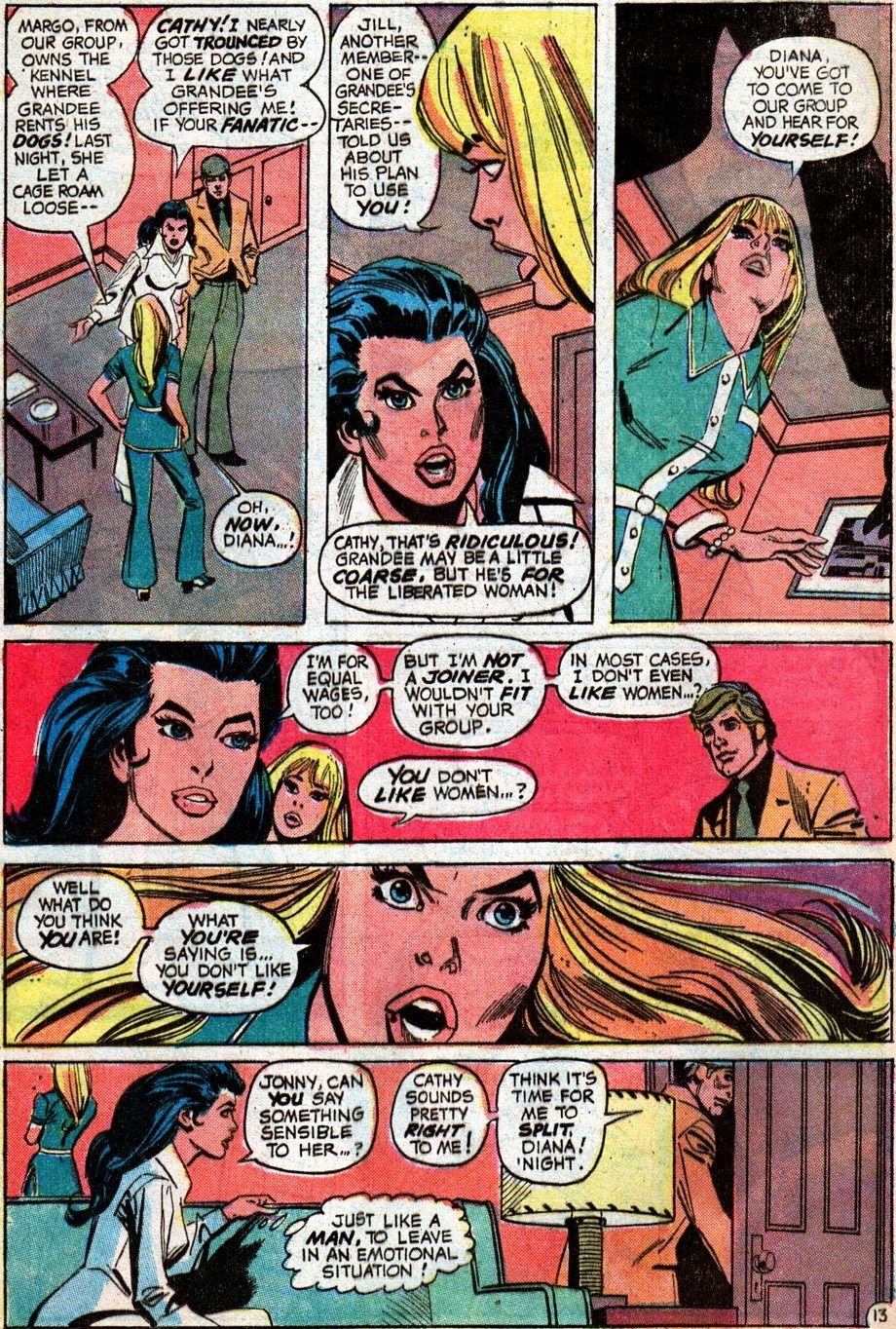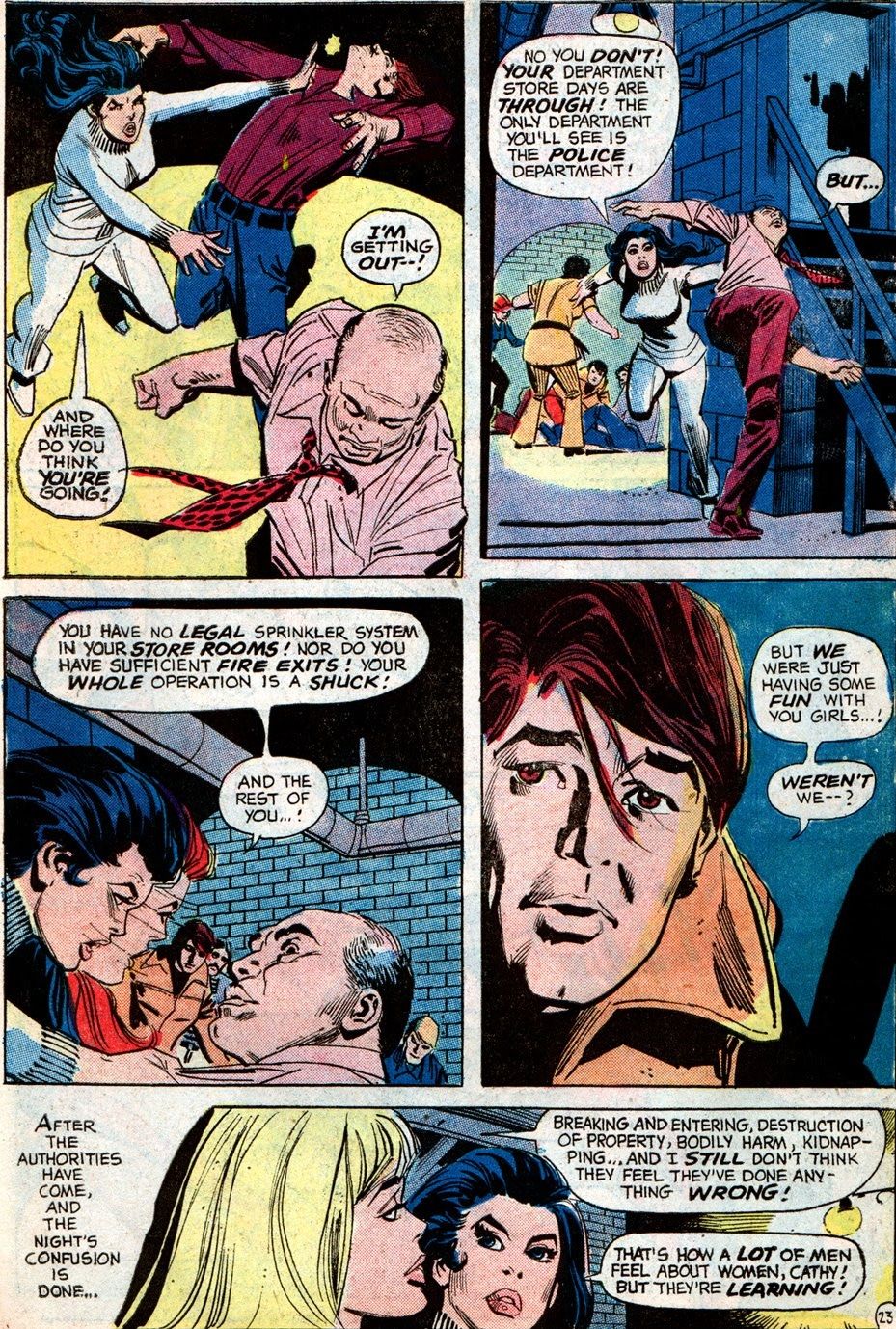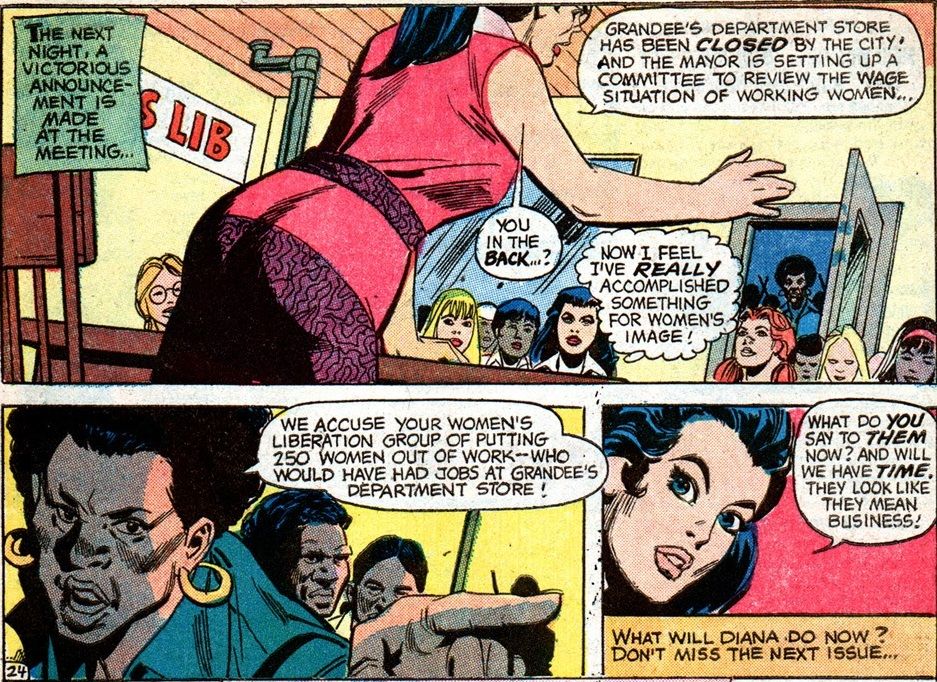Today, we head back 50 years to see when Wonder Woman had her infamous "Women's Lib" issue, where we learned that, in most cases, Diana doesn't "even like women."
This is "Look Back," where every four weeks of a month, I will spotlight a single issue of a comic book that came out in the past and talk about that issue (often in terms of a larger scale, like the series overall, etc.). Each spotlight will be a look at a comic book from a different year that came out the same month X amount of years ago. The first spotlight of the month looks at a book that came out this month ten years ago. The second spotlight looks at a book that came out this month 25 years ago. The third spotlight looks at a book that came out this month 50 years ago. The fourth spotlight looks at a book that came out this month 75 years ago. The occasional fifth week (we look at weeks broadly, so if a month has either five Sundays or five Saturdays, it counts as having a fifth week) looks at books from 20/30/40/60/70/80 years ago.
This around, we head to September 1972 for Wonder Woman #203 (by Samuel R. Delany and Dick Giordano, working with editor Denny O'Neil), for the infamous "Women's Lib" issue of Wonder Woman.
RELATED: 25 Years Ago, the DC Universe Was Taken Over By Pulp Fiction
WHY DID SAMUEL R. DELANY WRITE TWO ISSUES OF WONDER WOMAN?
Even by 1972. Samuel R. "Chip" Delany was a successful science fiction writer, so it was unusual to see him do two issues of Wonder Woman, but Denny O'Neil had taken over editing duties on the series and Delany was friends with O'Neil, so the author explained to Gary Groth in a 1979 interview that was published in 1980 in The Comics Journal what his thought process was at the time:
Gary Groth: I read that you had scripted Wonder Woman. I wasn’t aware of that. How did that come about?
Samuel R. Delany: For two issues, I think. This was back when National was at the end of its “relevant” phase. They’d been trying to do the relevant bit with a number of standard titles: Green Lantern (with Green Arrow) was, of course, the great success. But now they were trying the same thing with Wonder Woman. Only it wasn’t working. Mainly that was because the people they had writing it just didn’t have much of a feel for the women’s movement. Short of getting a woman writer for the series who did (Don’t ask me why they didn’t put some energy in that direction!), nobody could come up with anything. So at one point I said to Denny [Dennis O’Neil]: “I think I have more of a sense of this thing. Why don’t you let me do a couple?” So I did. A couple.
Gary Groth: This was while Denny was editing it?
Samuel R. Delany: Yes. From those two issues there was actually some very nice feedback. But then there was a big change. National decided to put Wonder Woman back into her American flag falsies and bring back the bullets and bracelets bit. For the previous ten years, basically she’d been wearing a gi and was a super karate expert. It was a lot more realistic and a lot more amenable to stories with some social bite.But there was this nostalgia surge to take her back to her fifties incarnation. D.C. used a chance comment Gloria Steinem dropped while being shown through the National offices to throw out all of Wonder Woman’s concerns for women’s real, social problems. Instead of a believable woman, working with other women, fighting corrupt department store moguls and crusading for food cooperatives against supermarket monopolies -- as she’d been doing in my scripts -- she got back all her super powers ... and went off to battle the Green Meanies from Mars who were Threatening the Earth’s Very Survival. ...I wasn’t interested in that. So I pulled out.
Delany was way off in how long Diana had been without her super powers (it had only been four years at this point), but otherwise, he captured it pretty well, including the fact that Wonder Woman returned to "normal" in the following issue of the series.
That final issue was specifically titled a special "Women's Lib" issue and...well...it did not go well...
WONDER WOMAN DOESN'T "EVEN LIKE WOMEN"
The issue opens with some guys cat-calling Diana, and she tells them off. One of them, though, decides to attack her when suddenly, out of nowhere, another young woman shows up to help Diana fight the guys...
Diana and the other women kick their butts, but then we get the first idea that Diana doesn't necessarily have the most accurate views on things when she chastises the girl for thinking that the guys were threats. He was literally attacking you, Diana!
There is a note that shows that the men might have been sent by a local department store, Grandee's (in a future article, I'll discuss who Grandee is based upon), and when Diana looks into him, he offers her a job paying her a thousand dollars a week to be the main spokesperson for the store. She's very intrigued. The talk, though, is broken up by some dogs attacking...
Wonder Woman subdues the dogs and then leaves, where we see Grandee talk some smack about Wonder Woman, and women in general...
When she gets back to Cathy's place, Diana defends wanting to take the job. Cathy gives her grief and then Diana drops one of her most infamous lines, about how in most cases, she doesn't even like women...
There is certainly something to be said for characters making mistakes and then growing from them, and Delany has Cathy tear Diana a new one and Diana quickly apologizes for being such a coward, so that's good, but for her to even say it in the first place was not a good idea.
In any event, in the end, Diana, Cathy and some of their friends then brings Grandee's down, proving that the whole thing was one big scam (fake clothing, fake everything)...
At the end of the issue, Delany gives the book a thought-provoking ending by having Diana confronted by the people (mostly Black women) who are now out of a job because Diana took Grandee down...
Again, Wonder Woman went back to "normal" the next issue and there was a new writer, so this was never resolved, but you certainly can't say that Delany didn't try some bold, bold ideas in his short stint on Wonder Woman. In fact, as I noted in an old Comic Book Legends Revealed, Delany would have ultimately taken this story to a point where Wonder Woman would have had to defend a local abortion clinic! Imagine if THAT had come out in 1973!
If you folks have any suggestions for October (or any other later months) 2012, 1997, 1972 and 1947 comic books for me to spotlight, drop me a line at brianc@cbr.com! Here is the guide, though, for the cover dates of books so that you can make suggestions for books that actually came out in the correct month. Generally speaking, the traditional amount of time between the cover date and the release date of a comic book throughout most of comic history has been two months (it was three months at times, but not during the times we're discussing here). So the comic books will have a cover date that is two months ahead of the actual release date (so October for a book that came out in August). Obviously, it is easier to tell when a book from 10 years ago was released, since there was internet coverage of books back then.

